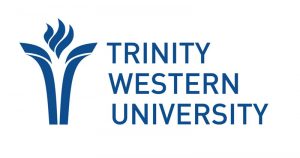Supreme Court Rules against Christian University
 OTTAWA – On June 15, the Supreme Court of Canada ruled against Trinity Western University (TWU), which was seeking to have the law societies of Ontario and British Columbia’s refusal to accredit graduates of TWU’s proposed new law school overturned. The societies had stated they would not accredit graduates of TWU, an Evangelical Christian university, because of the school’s community covenant, which prohibits sexual intimacy outside heterosexual marriage.
OTTAWA – On June 15, the Supreme Court of Canada ruled against Trinity Western University (TWU), which was seeking to have the law societies of Ontario and British Columbia’s refusal to accredit graduates of TWU’s proposed new law school overturned. The societies had stated they would not accredit graduates of TWU, an Evangelical Christian university, because of the school’s community covenant, which prohibits sexual intimacy outside heterosexual marriage.
The Supreme Court released a pair of complex 7-2 rulings, finding in favour of the law societies. While eight of the judges agreed that the decision to refuse to accredit TWU graduates represented an infringement on the university’s religious rights, the majority decided such infringement was justified in favour of upholding LGBTQ rights.
Justices Russell Brown and Suzanne Côté wrote a dissenting opinion in which they supported Trinity Western University. “The decision not to approve TWU’s proposed law faculty because of the restrictions contained in the Covenant—a code of conduct protected by provincial human rights legislation—is a profound interference with religious freedom, and is contrary to the state’s duty of religious neutrality,” they wrote.
“This is a sad day,” said Bruce J. Clemenger, President of the Evangelical Fellowship of Canada (EFC) after the ruling. “While the Court affirmed individual religious freedom and its expression, and did not oppose the idea of TWU law school, we are deeply concerned that the infringement of Charter freedoms was deemed reasonable.” The EFC (of which Lutheran Church–Canada is a full member, as of this past March) was an intervener in the case in support of TWU.
In 2012, Trinity Western University first submitted its proposal to open a new law school to the Province of British Columbia. The province gave approval the following year. Public outcry against TWU quickly followed, with much attention being paid to the university’s community covenant, which prohibits sex outside of heterosexual marriage. The covenant is a code of conduct drawn from the university’s Evangelical Christian beliefs, and all members of the TWU community—faculty, staff, and students—are required to abide by it while at TWU.
As public discussion of the proposed law school spread, the law societies of Ontario and Nova Scotia indicated they would refuse to allow graduates of TWU to practice in their provinces. In 2014, the Law Society of British Columbia followed suit, overturning a previous decision to recognize TWU graduates. In light of the Law Society’s new stance, the province of British Columbia subsequently revoked its approval of the law school.
Trinity Western University launched a legal challenge against the three provincial law societies, winning cases in the Nova Scotia Supreme Court and the Supreme Court of British Columbia. The Ontario Superior Court of Justice, meanwhile, ruled against the university. Both the B.C. and Ontario cases were appealed to the Supreme Court of Canada, leading to the June 2018 decision reported above.






[…] that the rights of potential LGBT students trump the religious rights claimed by the university (see article). Likewise, in Alberta there is a legal battle taking place over a provincial law mandating […]